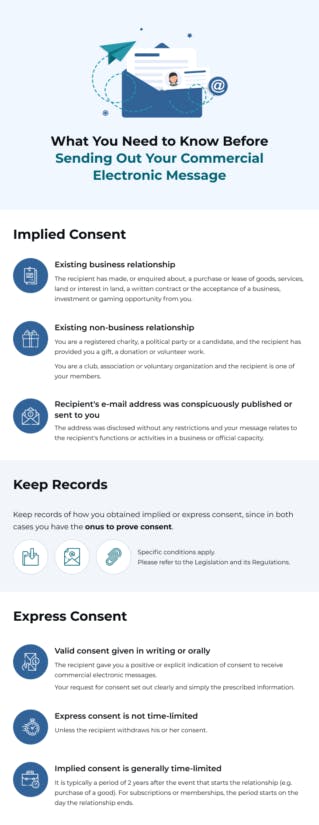
Consent has become a hot-button topic, and for good reason. Consent laws can be very complicated. All patients have a right to be informed about any treatments and procedures a doctor has proposed. Physicians have a duty to make sure their patients can make informed decisions about their health.
There are two types of consent that a patient may give to their medical provider: express consent and implied consent. The main difference between the two is that express consent is typically done in writing, while implied consent is typically conveyed through a patient’s actions or conduct.
The explicit words you use, implied consent laws, how you express consent, and more will determine your consent process. If someone violates your right to consent, they may be breaking the law. Read on for more information on how The Pendergrass Law Firm can protect your express and implied consent rights.

Express Consent
Express consent is also known as informed consent. Sometimes it’s necessary for a doctor to ask for express written consent when medically necessary. A patient can give express consent by signing a medical authorization form. Consent forms authorize a doctor to proceed with a specific medical treatment.
It’s the duty of the physician, by law, to provide the patient with a sufficient amount of information regarding their course of treatment. This is imperative so that the patient can make an informed decision about proceeding with that treatment. The typical information included in a patient authorization form includes:
- A description of the benefits of the treatment or procedure, the possible side effects, and the potential risks of the treatment
- A description of a patient’s alternative treatment options, if any exist
- A description detailing why the operating physician believes that the prescribed course of treatment or procedure is the best option
- A thorough description of the treatment or procedure
- An account of the potential consequences of not going through with the treatment
- The doctor’s proposed course of treatment or procedure
- The patient’s diagnosis
- The expected outcome of the course of treatment or the procedure
The following medical treatments generally require express written consent:
- Anesthesia
- Biopsies
- Blood transfusions
- Chemotherapy and radiation
- HIV testing
- Surgeries
- Vaccinations
If a doctor does not get express consent to perform a procedure or treatment, this can be grounds for a medical malpractice claim. That is why doctors will thoroughly explain treatments and procedures even if only implied consent is required. If your treating physician failed to comply with consent laws, speak with The Pendergrass Law Firm about your rights under the law.
Implied Consent
In some medical situations, consent between the patient and the attending physician is implied. Implied consent varies and depends on the facts and circumstances of the situation. Implied consent is generally provided through actions that can make it difficult to prove.
Let’s imagine that you have a routine physical exam; your doctor notices a medical issue and decides that they need to perform an invasive procedure or administer a course of treatment that wasn’t planned. In these instances, they need to obtain express written consent from you to perform the procedure or administer the treatment.
However, let’s say you were in an accident and became unconscious and unable to communicate. Medical personnel will assume that the victim would want them to render aid if they were conscious or could communicate. If a doctor needs to perform life-saving surgery on the unconscious victim of a car accident, for instance, consent is implied.
The plaintiff’s consent is implied when the plaintiff fails to object or is silent in a situation where a reasonable person would object to the defendant’s actions. Consent can also sometimes be implied when a patient is intoxicated, suffering from a debilitating mental illness, very young or very old, or when a language barrier exists between the patient and the physician.
Implied Consent Laws
Implied consent laws can vary from state to state. That’s why it can be useful to work with the implied consent professionals in Georgia at The Pendergrass Law Firm. For example, under “implied consent” laws in all states, motorists give consent to field sobriety tests and chemical tests to determine impairment. Refusing to do so can further complicate matters.
Following a Georgia arrest for allegedly driving under the influence of alcohol or drugs, the police officer reads you an advisement. This often includes your Miranda rights, but it also states that if you decline to give police permission to obtain tests of your blood, breath, or urine, then your driver’s license and right to drive a motor vehicle can be taken from you.
Georgia Consent FAQs
The law can seem confusing for those unfamiliar with the specific language and terms used by law enforcement officials and attorneys. That’s why The Pendergrass Law Firm is ready to offer assistance. Read on for more information about consent law, how to keep your motor vehicle, and what the law says about your consent claim.
How do I prove implied consent?
If you want to prove implied consent, document your interactions with the accused. Implied consent can be a defense in both civil and criminal trespass lawsuits, so you need to know how to navigate both systems.
Implied consent can arise from the actor’s reasonable interpretation of objective circumstances or the consenter’s conduct. Implied consent can be hard to prove in court, and that’s why it can be very beneficial to work with a Georgia consent law attorney.
What is a patient’s right to informed consent?
The American Medical Association states that informed consent is “fundamental in both ethics and law.” That’s why patients have the following rights:
- To make decisions about their medical treatment
- To make well-considered decisions about their course of treatment
- Information about the recommended treatment
- The opportunity to ask questions
A patient has the right to refuse medical treatment. Before a patient can give their informed agreement to a procedure, they should be apprised of the potential risks of the procedure.
A patient should be informed about the nature of their diagnosis and is entitled to know about the nature and purpose of the recommended treatment.
The doctor needs to explain the burdens, risks, and expected benefits of all options. This includes expensive options and even the option of refusing treatment. Only with all the information and the chance to ask questions can a patient truly understand the possible risks and rewards of a proposed medical treatment.
What is an example of express consent?
Consent can be expressed in written form or, in some cases, verbally. Generally, you will sign a medical authorization form that shares information about your diagnosis, the proposed procedure or course of treatment, and the benefits, side effects, and risks of the procedure or treatment, among other things.
What are the two basic forms of express consent?
Express consent should be given clearly and directly through written permission or verbally.
Is a signed document always proof of express consent?
A consent form may state that the patient was provided information about the procedure, alternative options, and risks. However, if a doctor gets a patient’s signature without fully educating them about the risks or other pertinent medical information, the doctor does not have informed consent.
Can an electronic signature be used to document consent or parental permission?
Yes, under certain circumstances. First, everyone needs to be aware of relevant laws pertaining to electronic signatures in the jurisdiction where the research will be conducted.
An electronic signature can be used if the signature is legitimate, and the consent or permission document can be produced in hard copy for review by the potential subject. If properly obtained, an electronic signature can be considered an “original” for the purposes of recordkeeping. If the courts are having trouble with an electronic signature, consider working with The Pendergrass Law Firm.
What is an example of implied consent?
Implied consent means that the patient’s actions reflect the patient’s consent to treatment. For example, if a patient makes an appointment for a vaccine, arrives at the appointment, and then rolls up their sleeve for the doctor to give the vaccine, then is presumed the patient consented to receive the vaccine.
What is the difference between implied consent and informed consent?
The essential difference between expressed and implied consent is that expressed consent is typically given with words, either on paper or verbally, while implied consent is usually understood through actions.
It can be much more challenging to prove implied consent in medical malpractice cases because it’s not a written agreement. However, there are cases where a medical authorization form does not include enough information for a patient to make an informed decision, which can be grounds for malpractice.
What should be considered when seeking informed consent from individuals with diminished decision-making capacity?
The HHS regulations are silent on the consent procedures specific to subjects with impaired decision-making capacity, for example, as a result of trauma, mental retardation, some forms of mental illness, or dementia, whether temporary, progressive, or permanent.
The regulations require that the physician ensure that additional safeguards have been included in the study to protect the rights and welfare of all subjects that are “likely to be vulnerable to coercion or undue influence.”
Many physicians adhere to the Four Component Model of Decisional Capacity. Capacity for healthcare is generally defined in terms of four dimensions or criteria: Understanding, Appreciation, Reasoning, and Expression of a Choice.
Sometimes it’s necessary for physicians to discuss with the prospective subjects whether they should designate someone to serve as a legally authorized representative at the outset of the procedure, consistent with all applicable laws.
Even if a subject has consented on their own accord, a designated representative would be ready to step in as the legally authorized representative if the subject’s ability to assess their needs and interests becomes compromised during the study. Contact The Pendergrass Law Firm if you need assistance with your consent laws case.
When may a legally authorized representative provide consent on behalf of an adult with diminished decision-making capacity?
As a general matter, if an adult lacks the capacity to consent, only a legally authorized representative for that adult can give consent for participation in the research. Unless the requirement to obtain informed consent is waived with the provisions of an emergency waiver.
If the subject regains or develops the capacity to consent, then their consent must be obtained for any further procedure, as the consent of the legally authorized representative is no longer valid. Speak with an experienced express consent attorney in Georgia at The Pendegrass Law Firm.
Talk To A Consent Attorney To Learn More
Medical malpractice claims involving consent can be complex and tricky to navigate. Express consent and implied consent laws can affect your license, healthcare, and more. If you have questions about the law around implied or express consent or if you were harmed because of a lack of informed consent, the Pendergrass Law Firm is ready to review your case and help you determine your legal options for recovery. The consultation is free and confidential. Contact us now; we are here to help you with express consent and more.


